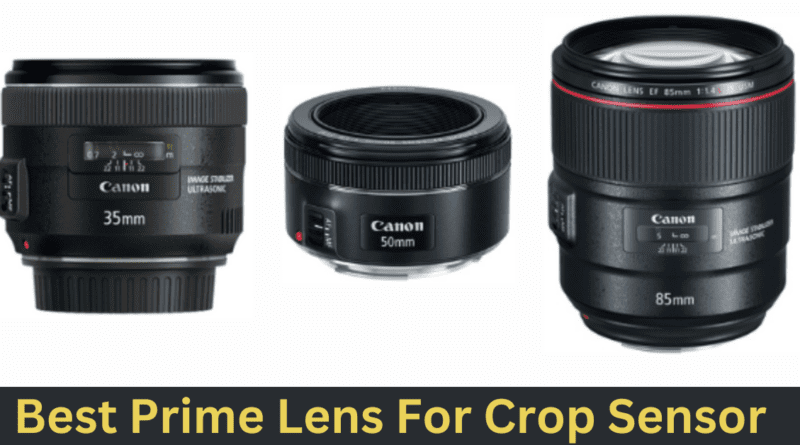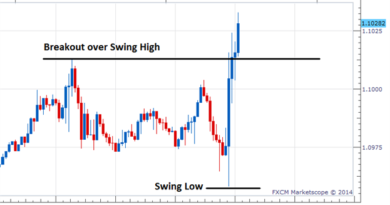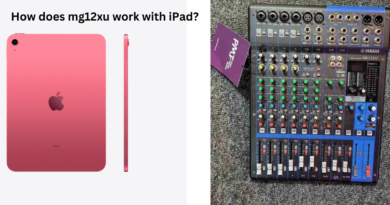Best Lens For Wedding Photography Crop Sensor
Wedding photography is a beautiful and challenging art form. Capturing those once-in-a-lifetime moments requires skill, creativity, and the right equipment. If you’re a photographer using a crop sensor camera for wedding shoots, you’re in luck. The best lens for wedding photography crop sensor cameras, helping you choose the perfect lens to capture those cherished moments with confidence.
The Importance of the Right Lens
Let’s talk about why having the right lens for wedding photography on a crop sensor camera is crucial. Your lens choice can significantly impact the quality and style of your wedding photos.
Here’s why:
- Focal Length Versatility: A versatile lens allows you to capture a variety of shots, from wide-angle group photos to intimate close-ups of the couple. It ensures you don’t miss any important moments.
- Low-Light Performance: Weddings often take place in challenging lighting conditions. A good lens should excel in low-light situations, reducing the need for flash photography and maintaining the ambiance.
- Bokeh Effect: The dreamy, blurred background (bokeh) is a hallmark of wedding photography. A lens with a wide aperture creates this effect, making your subjects pop.
- Sharpness and Clarity: Sharpness and clarity are non-negotiable. Your lens should deliver crisp, high-resolution images, especially for capturing intricate details and emotions.
Now, let’s dive into the top lens choices for crop sensor cameras in wedding photography.
1. Canon EF 50mm f/1.2L USM
When it comes to wedding photography, Canon’s 50mm f/1.2L USM lens is a favorite among professionals. The 50mm focal length offers a natural perspective, making it perfect for capturing candid moments and portraits. The f/1.2 aperture is a game-changer for low-light situations, producing stunning bokeh and sharp images even in dimly lit venues.
This lens is known for its exceptional image quality and color reproduction, ensuring your wedding photos are vibrant and lifelike. It’s also built like a tank, with weather sealing to handle outdoor shoots. Canon’s Ultrasonic Motor (USM) ensures quiet and fast autofocus, crucial for capturing fleeting moments without disrupting the ceremony.
Pro Tip: Consider using this lens for stunning bride and groom portraits. The creamy bokeh will make them stand out beautifully against soft backgrounds.
2. Nikon AF-S 35mm f/1.8G DX
If you’re a Nikon shooter with a crop sensor camera, the Nikon AF-S 35mm f/1.8G DX is a fantastic choice for wedding photography. This lens combines a versatile 35mm focal length with a wide f/1.8 aperture, making it ideal for both group shots and individual portraits.
One of the highlights of this lens is its compact size and lightweight build, making it easy to carry throughout the wedding day. The fast and accurate autofocus ensures you won’t miss any crucial moments. Additionally, the lens’s silent wave motor (SWM) ensures discreet shooting during quiet moments.
Pro Tip: Use the Nikon 35mm for capturing candid moments and wide-angle shots of the wedding venue. Its wide aperture will still provide that beautiful bokeh effect.
3. Sigma 18-35mm f/1.8 DC HSM Art
Sigma’s 18-35mm f/1.8 DC HSM Art lens is a versatile workhorse for crop sensor wedding photographers. This zoom lens offers a range of focal lengths from wide-angle to normal, making it suitable for various shooting scenarios.
With its impressive f/1.8 constant aperture, you’ll have no trouble shooting in low light. The lens is renowned for its exceptional sharpness and minimal distortion, ensuring your photos are tack-sharp and distortion-free.
One of the standout features of this Sigma lens is its Hyper Sonic Motor (HSM) for fast and quiet autofocus. Whether you’re capturing the grand entrance or the first dance, this lens has you covered.
Pro Tip: The Sigma 18-35mm is your all-in-one solution. Use it for group shots, capturing details, and even some creative wide-angle shots.
4. Sony FE 85mm f/1.8
For Sony crop sensor camera users, the Sony FE 85mm f/1.8 is an excellent choice, especially for capturing stunning portraits and intimate moments. The 85mm focal length provides a flattering perspective and beautiful compression, making your subjects stand out.
With its wide f/1.8 aperture, this lens excels in low-light conditions and delivers breathtaking bokeh. Sony’s linear autofocus motor (DDSSM) ensures precise and silent focusing, which is crucial during the ceremony when silence is golden.
Pro Tip: Use the Sony 85mm for capturing emotions during the vows and those tender moments between the newlyweds.
5. Tamron SP 45mm f/1.8 Di VC USD
Tamron’s SP 45mm f/1.8 Di VC USD is a gem of a lens that suits both Canon and Nikon crop sensor camera users. The 45mm focal length strikes a balance between wide-angle and portrait lenses, making it versatile for various wedding scenarios.
This lens boasts a unique feature in its Vibration Compensation (VC) system, which minimizes camera shake in low-light conditions. This ensures sharp images even when shooting handheld in dimly lit venues. The Ultrasonic Silent Drive (USD) motor provides quick and silent autofocus.
Pro Tip: The Tamron 45mm is perfect for capturing the atmosphere and candid moments during the reception, thanks to its VC system.
6. Fujifilm XF 23mm f/1.4 R
For Fujifilm crop sensor camera users, the Fujifilm XF 23mm f/1.4 R offers a superb combination of wide-angle and low-light capabilities. The 23mm focal length is excellent for capturing the overall ambiance of the wedding, including the venue and decorations.
With its wide f/1.4 aperture, this lens performs remarkably in low light. Fujifilm’s Quad Linear Motor ensures fast and precise autofocus, crucial for capturing dynamic moments during the celebration.
Pro Tip: Use the Fujifilm 23mm for wide-angle shots of the wedding venue, Decor, and guests arriving.
7. Olympus M.Zuiko 45mm f/1.8
Micro Four Thirds users will appreciate the Olympus M.Zuiko 45mm f/1.8 lens for its compact size and beautiful bokeh. The 45mm focal length is ideal for portraits and candid shots, emphasizing the couple and their emotions.
Despite its small size, this lens delivers impressive image quality and sharpness. The fast and quiet autofocus ensures you can capture those fleeting moments without drawing attention to yourself.
Pro Tip: Use the Olympus 45mm for capturing the couple’s emotions and expressions throughout the day.
Choosing the Right Lens for You
Selecting the best lens for wedding photography on your crop sensor camera ultimately depends on your shooting style and preferences. Here are some considerations to help you make the right choice:
- Focal Length: Determine the type of shots you want to capture. If you prefer close-up portraits, go for an 85mm lens. For versatility, consider a zoom lens like the Sigma 18-35mm.
- Aperture: If you frequently shoot in low-light venues or desire a pronounced bokeh effect, opt for a lens with a wide aperture like f/1.8 or lower.
- Budget: While quality lenses can be an investment, consider your budget when making a choice. Some third-party lenses offer excellent performance at a more affordable price.
- Brand Compatibility: Ensure the lens is compatible with your camera brand and model.
- Size and Weight: If you value portability, opt for smaller and lighter lenses, especially if you’ll be carrying multiple lenses.
- Special Features: Consider features like image stabilization (VC, IS) for handheld shooting and fast, silent autofocus.
Conclusion:
Elevate Your Wedding Photography
In the world of wedding photography, choosing the right lens is as crucial as your photographic skills. The lenses mentioned in this guide have been handpicked for their exceptional performance on crop sensor cameras. Whether you shoot with Canon, Nikon, Sony, Fujifilm, Olympus, or any other brand, there’s a lens tailored to your needs.
Now, armed with the knowledge of the best lens options for crop sensor cameras, you can confidently capture the magic of weddings. Remember that practice makes perfect, so take your chosen lens out for a test run before the big day to familiarize yourself with its features and capabilities.
Invest in the lens that resonates with your style and budget, and watch as your wedding photography reaches new heights. With the right lens, you’ll have the power to create timeless memories that will be cherished for generations to come.
Related Answer Questions
-
Is Crop Sensor Good for Wedding Photography?
Using a crop sensor camera for wedding photography can yield excellent results, but it comes with some considerations. Crop sensor cameras have a smaller sensor size than full-frame cameras, which can affect image quality, especially in low light conditions. However, advances in technology have improved crop sensor performance, making them suitable for wedding photography.
Crop sensor cameras offer benefits like extended reach, making telephoto lenses more effective for capturing candid moments during a ceremony. They are also lighter and more compact, making them convenient for event photographers who need to move quickly.
To maximize the potential of a crop sensor camera for weddings, invest in fast prime lenses with wide apertures (e.g., f/1.8 or f/1.4) to excel in low-light settings. While full-frame cameras have an edge in low-light performance and shallow depth of field, skillful photographers can achieve stunning wedding photos with crop sensor cameras.
In conclusion, crop sensor cameras can be suitable for wedding photography, but choosing the right lenses and mastering your equipment is crucial for achieving professional results.
-
What Lens Is Best for Weddings?
Selecting the best lens for wedding photography depends on your style and preferences, but there are a few go-to options that professionals commonly use:
a. Standard Zoom Lens (24-70mm f/2.8): This versatile lens covers a range of focal lengths, making it ideal for capturing a variety of shots, from wide-angle group shots to close-up portraits. Its wide aperture of f/2.8 allows for good low-light performance and creative depth of field control.
b. Prime Lenses (50mm f/1.8 or 85mm f/1.4): Prime lenses offer excellent image quality and the ability to shoot with a very wide aperture. A 50mm lens is great for portraits and general photography, while an 85mm lens provides beautiful bokeh and is perfect for capturing intimate moments.
c. Telephoto Lens (70-200mm f/2.8): This lens is essential for candid shots during the ceremony or reception, allowing you to capture emotional moments discreetly from a distance.
Ultimately, the best lens for weddings depends on your style, the venue’s size, and your comfort with lens changes. Many wedding photographers use a combination of these lenses to cover all aspects of the event.
-
What Is the Best Lens for Crop Sensor Street Photography?
Street photography with a crop sensor camera can be highly rewarding. For this genre, you’ll want a lens that’s discreet, versatile, and capable of capturing the essence of the streets. A few great options include:
a. 35mm f/1.8 or f/2: A 35mm lens on a crop sensor camera provides a focal length equivalent to around 50mm on a full-frame camera, making it a versatile choice. It’s wide enough for street scenes but also suitable for portraits and low-light conditions.
b. 50mm f/1.8: This lens, equivalent to about 75mm on a crop sensor camera, offers a bit more reach, making it great for capturing candid portraits and isolating subjects from the background.
c. 24mm f/2.8: If you prefer wider shots and immersive street photography, a 24mm lens is a solid choice. It’s ideal for capturing the environment and storytelling within your frames.
Ultimately, the best lens for crop sensor street photography depends on your style and the scenes you want to capture. Many street photographers opt for prime lenses with wide apertures to achieve creative and expressive results.
-
What Is the Standard Lens for Crop Sensor?
The standard lens for crop sensor cameras is typically considered to be a prime lens with a focal length around 35mm to 50mm, taking the crop factor into account. This range provides a natural field of view similar to what the human eye sees, making it versatile for various photography situations.
For crop sensor cameras, a 35mm prime lens (often referred to as a “nifty fifty”) is a popular choice. It offers a field of view close to 50mm on a full-frame camera, making it suitable for everyday photography, portraits, and street photography. The wide aperture versions (e.g., f/1.8 or f/1.4) are especially prized for their low-light capabilities and ability to create a shallow depth of field.
Ultimately, the choice of a standard lens for a crop sensor camera depends on your photographic preferences. Some photographers prefer the slightly wider perspective of a 35mm lens, while others opt for a 50mm lens for a more traditional field of view.
-
Do Professionals Use Crop Sensor?
Yes, many professional photographers use crop sensor cameras for various purposes. The choice between crop sensor and full-frame cameras often depends on the photographer’s specific needs and budget constraints.
Crop sensor cameras offer several advantages, such as affordability, portability, and sometimes even a higher effective reach when using telephoto lenses. They can produce high-quality images and are suitable for a wide range of photography genres, including portrait, landscape, sports, and even some types of event photography.
Professionals who opt for crop sensor cameras may appreciate the cost savings, especially when considering the expense of full-frame camera bodies and lenses. Additionally, crop sensor cameras can be less cumbersome for travel and on-location shoots.
However, full-frame cameras do have some advantages, particularly in low-light conditions and when maximum image quality and depth of field control are required. Consequently, some professional photographers choose full-frame cameras for specific assignments while using crop sensor cameras for others, demonstrating that both have their place in the professional photography world.
-
Which Is Better: Full Frame or Crop Sensor?
The choice between a full-frame and crop sensor camera depends on your specific needs and preferences as a photographer.
Full Frame:
- Pros:
- Better low-light performance: Larger sensors typically handle low-light situations with less noise.
- Shallower depth of field: Easier to achieve background blur and subject isolation.
- Greater dynamic range: Captures more details in highlights and shadows.
- Cons:
- Larger and heavier equipment.
- Higher cost, both for camera bodies and lenses.
Crop Sensor:
- Pros:
- More affordable: Cameras and lenses are often less expensive.
- Greater reach: Crop factor effectively extends the focal length of lenses.
- Compact and lightweight: Ideal for travel and on-the-go photography.
- Cons:
- Slightly reduced low-light performance and depth of field control.
- Potential for more noise in certain conditions.
Both formats have their strengths and weaknesses, and the choice depends on your photography style and budget. Full frame is often preferred for professional portrait and landscape work, where image quality and creative control are paramount. Crop sensor cameras are popular for sports, wildlife, and travel photography due to their portability and reach.
Ultimately, the best format is the one that aligns with your photography goals and how you intend to use your camera.
-
Should I Get a 35mm Lens for Crop Sensor?
Getting a 35mm lens for a crop sensor camera can be an excellent choice, depending on your photography needs and style. Here are some considerations:
Advantages:
- Versatility: A 35mm lens provides a natural field of view, making it suitable for various photography genres, including street, portrait, landscape, and everyday photography.
- Low-Light Performance: Many 35mm lenses come with wide apertures (e.g., f/1.8 or f/2), which excel in low-light conditions, allowing for faster shutter speeds and reduced noise.
- Creative Options: The wide aperture can create a pleasing background blur (bokeh) and allow for selective focus, enhancing your creative options.
Considerations:
- Crop Factor: Keep in mind the crop factor of your camera when using a 35mm lens. On a crop sensor camera, it effectively becomes a lens with a longer focal length (e.g., around 50mm equivalent on APS-C sensors).
- Field of View: If you’re looking for a wider perspective, you might prefer a 24mm or 28mm lens on a crop sensor for street photography.
In summary, a 35mm lens is a valuable addition to a crop sensor camera kit, offering versatility and excellent low-light performance. It’s especially well-suited for those who appreciate a moderate wide-angle perspective and the creative possibilities of a wide aperture.
-
Can You Do Professional Photography with a Crop Sensor Camera?
Yes, you can absolutely do professional photography with a crop sensor camera. The key to successful professional photography is not solely dependent on the camera body but also on the photographer’s skill, creativity, and knowledge of their equipment.
Crop sensor cameras have advanced significantly in recent years, offering high-resolution sensors, fast autofocus systems, and excellent image quality. They are well-suited for various professional photography genres, including:
- Portraiture: Crop sensor cameras can produce stunning portrait shots when paired with the right lenses and lighting equipment.
- Wedding Photography: Many wedding photographers use crop sensor cameras due to their portability and versatility.
- Sports and Wildlife Photography: Crop sensor cameras with fast burst rates and good autofocus are popular among sports and wildlife photographers.
- Street Photography: The compact size of crop sensor cameras makes them ideal for street photographers who value discretion.
- Travel Photography: Their lightweight design is a bonus for travel photographers who want to minimize their gear’s weight and size.
To excel in professional photography with a crop sensor camera, invest in high-quality lenses, master your camera settings, and continually hone your photography skills.
-
Can I Use Full-Frame Lenses on a Crop Sensor Camera?
Yes, you can use full-frame lenses on a crop sensor camera. In fact, using full-frame lenses on a crop sensor camera can have certain advantages and considerations:
Advantages:
- Improved Image Quality: Full-frame lenses are often designed for high image quality, and when used on a crop sensor camera, you may experience reduced optical aberrations and sharper images.
- Effective Focal Length Increase: Full-frame lenses provide a different field of view on crop sensor cameras due to the crop factor. This effectively extends the focal length, making them useful for telephoto applications.
Considerations:
- Crop Factor: Keep in mind the crop factor of your camera when using full-frame lenses. For example, a 50mm full-frame lens on a crop sensor camera might behave more like an 80mm lens (with a crop factor of 1.6x for APS-C sensors).
- Size and Weight: Full-frame lenses are often larger and heavier than lenses designed specifically for crop sensor cameras. This can affect the balance and portability of your camera setup.
- Cost: High-quality full-frame lenses can be expensive, so ensure they align with your budget and photography needs.
In summary, using full-frame lenses on a crop sensor camera can be beneficial in certain situations, especially when you want to take advantage of the lens’s optical qualities or need the additional reach provided by the crop factor. Just be aware of the changed field of view and potential size and weight considerations.




